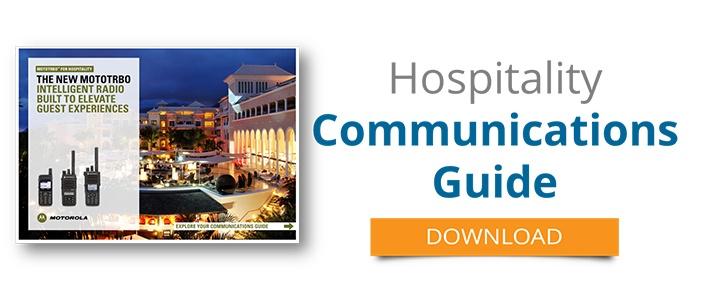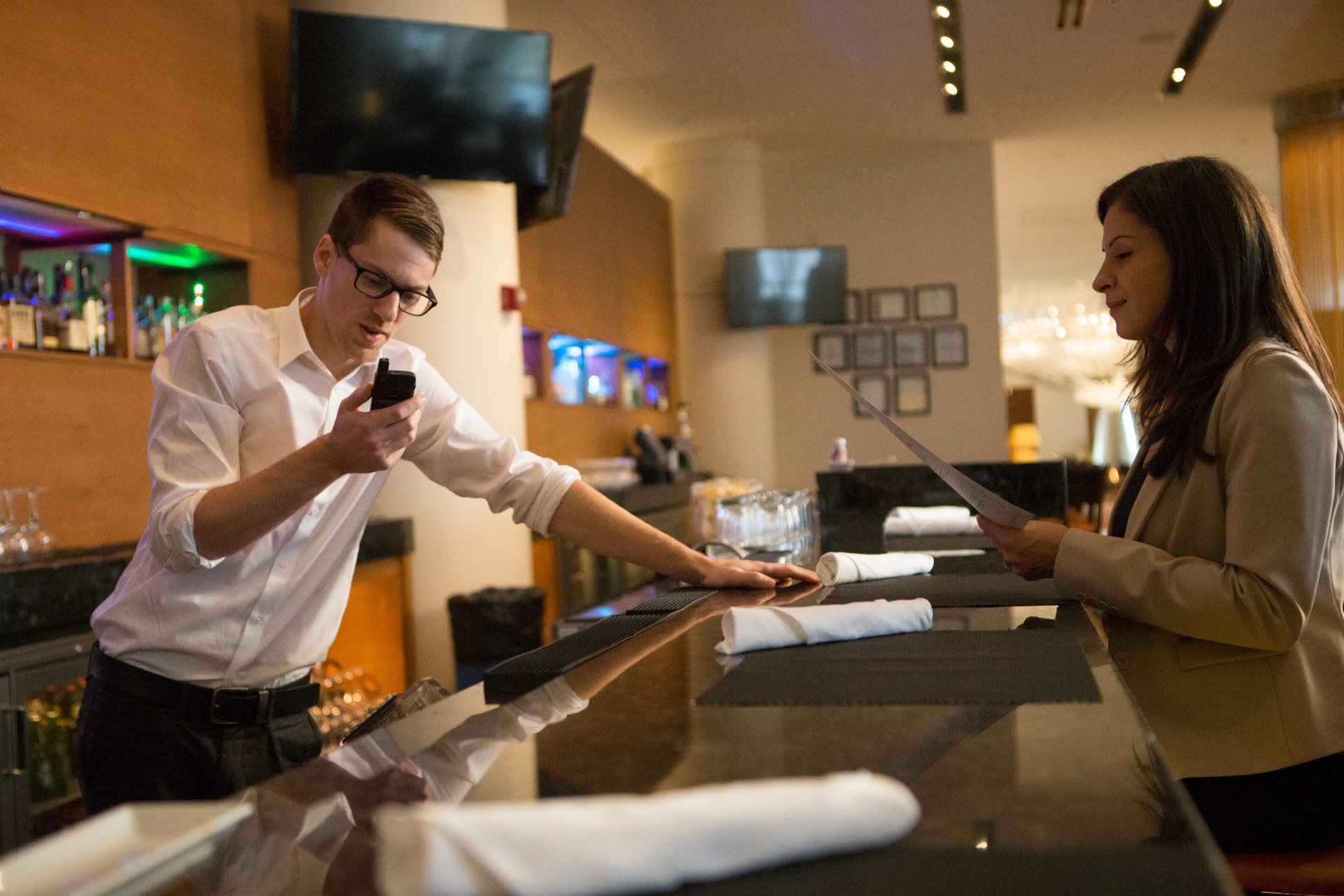
In the fast-paced hospitality industry, seamless timing and coordination can make all the difference. Whether in hotels, resorts, cruises, or event venues, reliable hospitality technology, like two-way radios and communication systems, is essential for keeping staff connected and ensuring guests have a first-rate experience. As guest expectations for quick, efficient service continue to rise, the need for integrated communication tools has never been greater. Here’s how advanced technology in hospitality helps solve real-world challenges and keeps operations running smoothly.
Staying Connected When It Counts
When hospitality teams have reliable ways to communicate, it leads to:
- Faster room turnovers and increased guest satisfaction
- Real-time responses to guest requests
- Efficient coordination during special events
- Quick emergency responses to ensure guest and staff safety
- Improved housekeeping and maintenance communication
- Enhanced hotel security through streamlined communications
- Lower operating costs with efficient staff management
These benefits add to a stronger overall guest experience, building loyalty and positive reviews.
6 Scenarios of Hospitality Technology in Action
These real-world examples highlight how advanced communication tools keep hospitality teams running smoothly and effectively:
Scenario #1: Rapid Response to an Emergency
During a river rafting tour, one of the guests starts having difficulty breathing. The tour leader uses their two-way radio to alert the main office, which contacts emergency services to send an ambulance to a designated meeting spot.
Result: The guest receives prompt medical attention, and the tour continues without significant disruption. Quick emergency responses build guest trust and ensure a safe, reliable experience—key priorities in today’s hospitality industry.
Scenario #2: Adapting to Unexpected Delays
Due to inclement weather, a cruise ship is delayed in reaching port, disrupting the plans of incoming guests. The tour operator uses their communication system to arrange alternate activities with local service providers, keeping guests engaged and informed.
Result: By keeping guests entertained and reassured during unexpected delays, the operator demonstrates adaptability and a commitment to top-notch customer service, a hallmark of successful hospitality brands.
Scenario #3: Quiet Coordination in Busy or Quiet Spaces
A tour group is visiting a museum. A tour operator in the museum needs to relay a message to the bus driver outside but doesn’t want to disrupt the guide’s presentation. The operator coordinates discreetly using an earpiece, keeping the logistics seamless without impacting the guest experience.
Result: Because he is wearing an earpiece, the tour operator does not disrupt the museum's guide from explaining the history of the pieces in the room. Discreet communication devices allow staff to manage logistics quietly, showcasing professionalism and a commitment to preserving guest experiences.
Scenario #4: Enhancing Hotel Security and Privacy
A hotel security manager was informed that one of his officers had misplaced his radio. Due to the sensitive nature of the communications, he is concerned that it will compromise hotel security. The hotel security manager activates the radio's Selective Radio Inhibit feature using his HT1250 to disable the device, preventing unauthorized access.
Result: Modern security features like Selective Radio Inhibit keep sensitive information secure. This reinforces the hotel’s reputation for privacy and security, which are crucial factors for guest trust and loyalty in hospitality.
Scenario #5: Handling Last-Minute Requests for Special Accommodations
During a last-minute event, the banquet manager receives a request for a vegetarian meal. Using their two-way radio, they coordinate with the hotel’s shuttle driver to pick up ingredients on the next scheduled run.
Result: Radio allows staff to save the time and mileage of an extra trip from the hotel and allows them to provide a high level of customer service by accommodating the special meal request. Accommodating guest requests, even on short notice, demonstrates a personalized level of customer service that sets hospitality businesses apart.
Scenario #6: Efficient Room Turnovers to Enhance Guest Satisfaction
A guest checks out later than expected, delaying housekeeping in preparing the room for the next arrival. As soon as the room is ready, housekeeping radios the front desk so that the next guest can check in without further delay.
Result: Real-time communication between housekeeping and front desk teams reduces guest wait times and enhances satisfaction. Faster room turnovers help hotels maximize occupancy and improve operational efficiency.
Scenario #7: Enhancing Guest Personalization and VIP Treatment
A VIP guest checks into a hotel, and the front desk radios housekeeping to prepare specific amenities and room adjustments based on the guest’s preferences. Maintenance and room service are also notified to ensure everything is set up to meet the guest’s expectations.
Result: By using communication technology to personalize the experience, the hotel makes VIP guests feel valued and cared for, which can lead to stronger loyalty and positive reviews.
Scenario 8: Monitoring and Managing Noise Complaints
A guest staying on the top floor of a hotel calls the front desk late at night to report a loud noise coming from a group on the balcony below. The front desk immediately radios security, who locates and approaches the group to resolve the issue quietly and professionally. Once the noise is addressed, security radios back to the front desk, allowing staff to inform the guest that the issue has been resolved.
Result: By handling noise complaints promptly, staff demonstrate attentiveness to guest comfort and create a peaceful environment, even during busy hours. This level of responsiveness to guest feedback enhances the guest experience and can lead to positive reviews.
Bringing the Benefits of Hospitality Technology to Your Operations
These scenarios illustrate how effective communication tools transform hospitality operations, from boosting efficiency to enhancing guest experiences. With reliable hospitality technology, like two-way radios and integrated communication systems, hospitality teams are equipped to provide prompt, responsive service, coordinate more efficiently, and ensure a safe, welcoming environment for guests.
Curious how advanced hospitality technology could benefit your operations? Contact us to learn how our solutions can help streamline your processes, improve guest satisfaction, and keep your team connected. Explore our latest case studies and download our free Hospitality Communications Guide to see how we’re helping hospitality businesses like yours achieve operational excellence and standout guest experiences.


